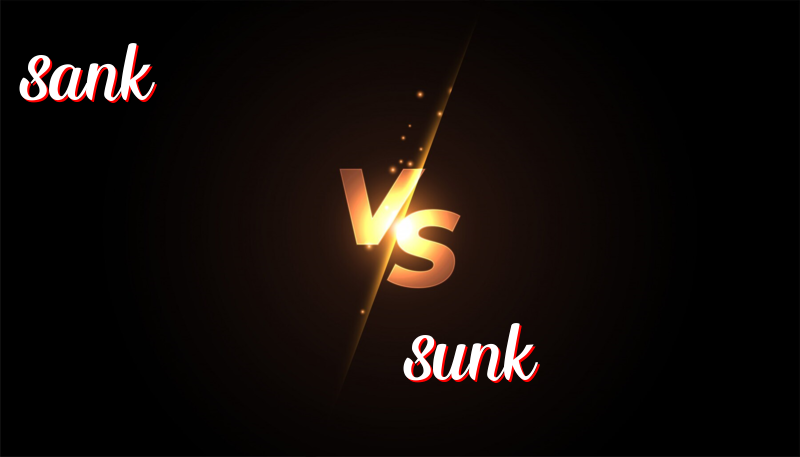The Difference Between Sank and Sunk
The Difference Between Sank and Sunk
People sometimes get confused between the words “sank” and “sunk.” Let’s clear up the confusion!
History:
The word “sank” comes from the Old English word “sincan,” while “sunk” originated from the word “sincan” as well, but with a past participle suffix added to it.
How to Use Them:
– We use “sank” for the past tense form of “sink,” which means to go downward in water or another liquid.
– We use “sunk” for the past participle form of “sink.”
Trick to Remember the Difference:
Think of “sank” rhyming with “bank,” which both end in “ank.” “Sank” is the simple past tense.
Examples of Sank:
1. The ship sank to the bottom of the ocean.
2. He sank his teeth into the juicy apple.
3. The rock sank slowly in the pond.
4. The sun sank below the horizon.
5. She sank into the comfy chair after a long day.
Examples of Sunk:
1. The treasure chest had sunk to the ocean floor.
2. The weight of the boat sunk it in the water.
3. The key accidentally sunk to the bottom of the lake.
4. The heavy rock had sunk far beneath the surface.
5. The anchor sunk quickly as the ship came to a stop.
Summary:
Remember, use “sank” for the past tense (simple action happened in the past) and “sunk” for the past participle (action completed in the past). “Sank” is like “drink, drank, drunk” and “sunk” is like “swim, swam, swum.”

Leave a Reply
You must be logged in to post a comment.